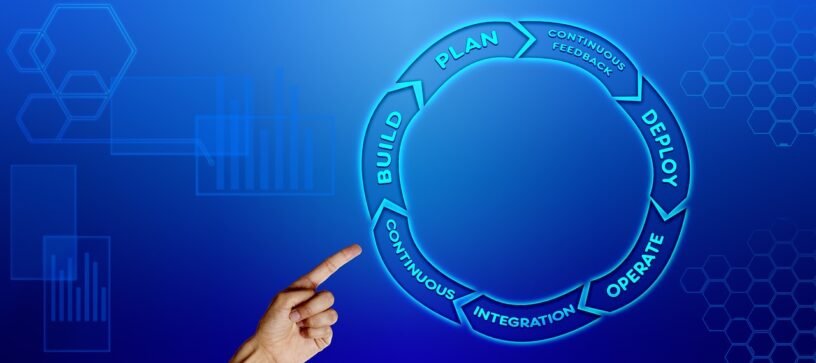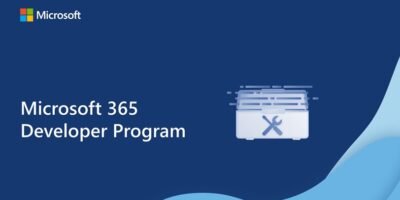Table of Contents
Introduction
IT job seekers may find technical interviews nerve-wracking, particularly if they want to work as DevOps engineers. The purpose of these interviews is to evaluate your technical proficiency, problem-solving skills, and adaptability to real-world situations. I will cover common interview questions and coding challenges unique to DevOps engineering roles in this blog post, along with detailed preparation advice.
Understanding the DevOps Landscape:
Knowing the DevOps Environment It’s essential to have a firm grasp of the DevOps environment before preparing for a technical interview. Collaboration between development and operations teams is emphasized by the DevOps cultural shift, which goes beyond a simple toolkit. Provide a thorough explanation of your knowledge of the DevOps philosophy, automation, continuous integration/continuous deployment (CI/CD), and your experience with pertinent tools.
Essential Technical Concepts:
Essential Technical Concepts DevOps engineers are expected to have a broad range of technical knowledge. Ensure you are well-versed in the following key areas:
a. Version Control Systems:
- Understand Git fundamentals, branching strategies, and merging.
- Be able to explain how Git is used in a collaborative development environment.
b. Infrastructure as Code (IaC):
- Familiarize yourself with tools like Terraform or Ansible.
- Showcase your experience in automating infrastructure provisioning.
c. Continuous Integration/Continuous Deployment (CI/CD):
- Explain the CI/CD pipeline and its importance.
- Share experiences with popular CI/CD tools such as Jenkins, GitLab CI, or Travis CI.
d. Containerization and Orchestration:
- Demonstrate knowledge of Docker and Kubernetes.
- Discuss the benefits of containerization and how orchestration tools enhance scalability.
Common Interview Questions:
Common Interview Questions DevOps interviews often include questions that assess your problem-solving abilities and understanding of key concepts. Here are some common questions:
1. Explain the difference between Docker and Virtual Machines.
Example Answer: “Docker containers share the host OS kernel, making them lightweight and more efficient than traditional VMs, which run a full OS stack for each instance.”
2. How would you handle a sudden increase in traffic to your application?
Example Answer: “I would scale the application horizontally using Kubernetes to distribute the load across multiple containers, ensuring high availability and performance.”
3. Describe the process of rolling back a failed deployment.
Example Answer: “I would use version control to revert to the previous working state, update the CI/CD pipeline to fix the issue, and redeploy the application.”
4. How do you ensure the security of a CI/CD pipeline?
Example Answer: “I implement security measures at various stages, such as code scanning for vulnerabilities, using secrets management tools, and applying role-based access controls to the CI/CD tools.”
5. Explain the concept of blue-green deployment.
Example Answer: “In a blue-green deployment, two identical environments (blue and green) run simultaneously. I would deploy the new version to the ‘green’ environment, perform testing, and switch traffic to ‘green’ once validated, minimizing downtime.”
6. Discuss the importance of monitoring and logging in a DevOps environment.
Example Answer: “Monitoring and logging are crucial for identifying performance issues and troubleshooting. I leverage tools like Prometheus for monitoring and ELK stack (Elasticsearch, Logstash, Kibana) for centralized logging.”
7. How do you handle configuration management in your infrastructure?
Example Answer: “I use tools like Ansible or Puppet to manage configurations. By defining infrastructure as code, I can ensure consistency across environments and easily replicate configurations.”
8. Describe a situation where you had to optimize the performance of a web application.
Example Answer: “I identified bottlenecks using monitoring tools, optimized database queries, implemented caching strategies, and utilized content delivery networks (CDNs) to improve the overall performance of the web application.”
9. What is the role of automated testing in the CI/CD pipeline?
Example Answer: “Automated testing ensures code quality and reduces the risk of introducing bugs. I integrate unit tests, integration tests, and end-to-end tests into the CI/CD pipeline to catch issues early in the development process.”
10. How would you handle a configuration drift in your infrastructure?
Example Answer: “I regularly use configuration management tools to enforce desired states. If a drift occurs, I’d compare the current state against the desired state, identify the differences, and apply the necessary corrections.”
Coding Challenges:
Coding Challenges DevOps engineers are often required to write scripts and automate processes. Prepare for coding challenges that assess your scripting skills:
1. Write a script to automate the deployment of a web application.
Example Solution: Use a tool like Ansible to create a playbook that automates the deployment process, including copying files, updating configurations, and restarting services.
2. Solve a problem related to infrastructure scaling.
Example Solution: Write a script using Terraform to dynamically adjust the number of instances in an auto-scaling group based on resource utilization.
3. Write a script to automate the backup of a database and ensure its regular execution.
Example Solution: Create a script using a language like Python or Bash that connects to the database, performs a backup, and schedules the task using cron or a similar scheduler.
4. Develop a script to monitor server resource utilization (CPU, memory, disk space) and send alerts if any metric exceeds a defined threshold.
Example Solution: Use a scripting language like Python or a monitoring tool like Prometheus with custom alerting rules to regularly check server metrics and trigger alerts when thresholds are exceeded.
5. Implement a deployment pipeline for a microservices architecture.
Example Solution: Create a CI/CD pipeline that automates the building, testing, and deployment of microservices. Utilize containerization tools like Docker and orchestration tools like Kubernetes for scalability.
6. Write a script to automate the scaling of a Kubernetes cluster based on resource demand.
Example Solution: Use Kubernetes Horizontal Pod Autoscaling (HPA) to automatically adjust the number of pods based on metrics like CPU or memory utilization.
7. Develop a script to automate SSL certificate renewal for web applications.
Example Solution: Use a scripting language like Bash or a tool like Certbot to automate the renewal process, including updating certificates and restarting web servers.
8. Create a script to automate the provisioning of cloud resources using Infrastructure as Code.
Example Solution: Use a tool like Terraform to define the infrastructure in code and automate the provisioning of cloud resources.
9. Implement a script to roll out configuration changes across multiple servers simultaneously.
Example Solution: Use a configuration management tool like Ansible to push configuration changes to multiple servers in parallel, ensuring consistency across the infrastructure.
10. Develop a script to automate the integration of security scanning into the CI/CD pipeline.
Example Solution: Integrate security scanning tools like SonarQube or OWASP ZAP into the CI/CD pipeline, automatically scanning code for vulnerabilities during the build process.
It takes a combination of technical knowledge, problem-solving abilities, and the capacity to explain your experiences to ace technical interviews as a DevOps engineer. You’ll be well-equipped to ace your next technical interview by comprehending the DevOps landscape, concentrating on key technical concepts, getting ready for typical questions, and practicing coding challenges.
Good luck!
Frequently Asked Questions about DevOps engineer:
Does a DevOps engineer do coding?
Yes, a DevOps engineer often does coding, especially scripting for automation and creating CI/CD pipelines. They may also write code to integrate different systems and tools.
Can I learn DevOps in 1 month?
Learning the basics of DevOps in 1 month is possible, but becoming proficient typically takes longer. It requires understanding various tools, practices, and principles that are best learned through hands-on experience.
What is a DevOps engineer skill?
Key skills for a DevOps engineer include proficiency in automation tools (like Jenkins, Docker), knowledge of cloud platforms (AWS, Azure), scripting languages (Python, Bash), understanding CI/CD practices, and familiarity with infrastructure as code (IaC) tools like Terraform.




Leave a Reply